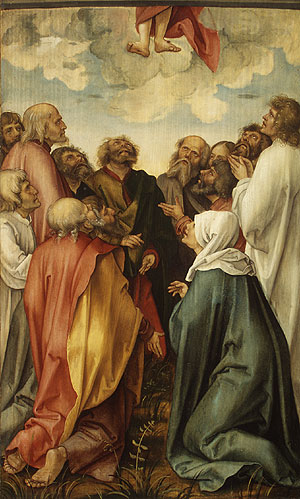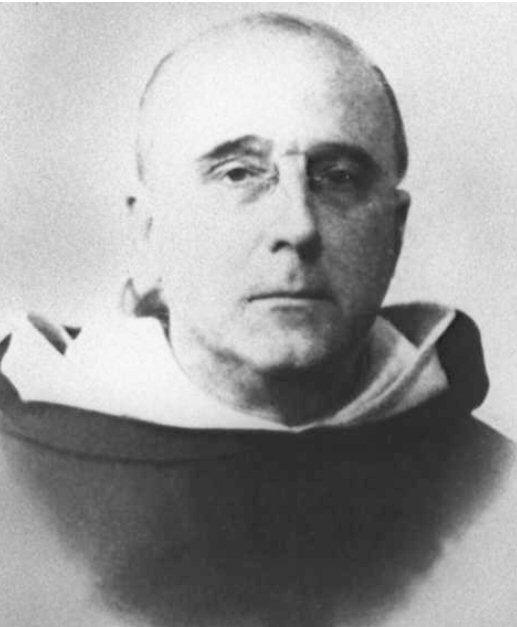What do you do when you read
scripture you don’t understand? Break out the Greek and Hebrew dictionaries? Go
read your favorite commentaries?
Or there is the more elusive
contemplative approach: meditate on the scripture. Let your mind soak in it and
let the Holy Spirit use it to say something to you.
Here, James Alison
wonderfully describes a way somewhere down the middle of this road:
“When we say that this text
is “Holy Scripture,” we don’t mean to say that it is venerable, with a patina
of glorious tradition, or something like that. We mean that we don’t question
it so as to break it, but rather we allow it to get close enough to us to
produce a break in us.
“If we can hear the parts of
the text which make no sense, rather than only those parts which we use to
justify ourselves and strengthen our self-image, then perhaps from within that
same sense of strangeness we will hear the Other whose image we are called to
recover.”
-James Alison, Raising Abel
Chapter 1
----------------- Fix Your Minds….
In the epistle to the Colossians we read this verse:
“Fix your minds [phroneite] on the things that are above,
and not on the things of earth.” (Col. 3:2)
If you know what this means, then you need spend no longer
reading through these pages, for you have already received and understood the
eschatological imagination. Theology is perhaps for those of us who can’t find
an obvious sense in what may be very simple perceptions, ones which are
understood intuitively by better Christians than ourselves; theology would be
for those of us who are obliged to the hard labor of dragging our obstinate
intellects through the spines and thistles of our own self-deceit so as to
bring each thought, each remnant of intellectual pride, captive before Christ
(2 Cor. 10:5), plowing out meaning from arid and sterile soil.
In fact the verse which I quoted belongs to a context,
within which we are told:
“If then you have risen with Christ, seek the things which
are above, where Christ is seated at the right hand of God.” (Col. 3:1)
Then follows our verse, and then we get:
“For you have died and your life is hidden with Christ in God.
When Christ, who is our life appears, then shall you also appear with him in
glory.” (Col. 3:3-4) (these 2 verses are 2 of my favorites in all of scriptures)
There is a whole nexus of references here; hidden just
beneath the surface of these verses… (Alison goes a few sentences and then we
read…) This was of particular importance to the apostolic group because Jesus
himself had commented on it, immediately before his passion, in the Temple… We are talking
about something which was evidently imbued with great significance for the
apostolic witnesses to the life and resurrection of Jesus: the happening which
we describe when, while professing our faith, we say, “He ascended into heaven
and is seated at the right hand of God.” That is to say, we are talking about
the Ascension.

Well indeed, and what might
that mean? Is that happening in any
way significant to us? We are used to a certain discourse about the Cross,
perhaps a somewhat sick one, and also a discourse about the resurrection,
perhaps a somewhat vacuous one. But, a discourse about the Ascension? Insofar as
it gets talked about at all it appears as a somewhat apologetic loose end to
the resurrection stories, as if it were a slightly shameful way of explaining
why Jesus is no longer to be found, at least in this form. Certainly I’m not aware of much importance
being attached to this happening, and even less of anyone attributing to it a
marked incidence on our lives.
However, it seems to have a special importance in the
apostolic witness; in fact, in the verse which I quoted at the beginning it
seems to be the sine qua non by which Christians understand who we are, as well
as being a principle of action. If this is the case, then we are talking about
some lost understanding, something that was quite clear for the apostolic
witnesses, but which has become so opaque for us that we don’t even realize
that we’re missing out on something. So, we’re going to do a little bit of
detective work, rather like an archaeological dig, with the difference that
instead of looking for a criminal or for the remains of an ancient building, we
are seeking to bring out traces of the lost inner dynamic of a series of texts
which we have available to us.
Now, this is no easy exercise, since our temptation with any
ancient text is to find ourselves reflected in it. This can’t be avoided, since
we cannot draw close to any text except as ourselves, with all our education,
our insights, our psychology, prejudices, and resentments. However, in the case
of this text, the text of the apostolic witness, which we normally call “The
New Testament,” the Church, as the original compiler of the text, asks us to go
slow. We are told that something extraordinary and indescribable took place
with the person of Jesus of Nazareth, and that this happening produced a series
of changes in the way of perceiving things and carrying them out in the people
who had known and accompanied him. These people, or rather their friends and
collaborators, put into writing something of what they had experienced, and
these writings are conserved with immense care by the Church. From time to time
the Church becomes aware that it doesn’t understand very well certain parts of
its own vital text; however, it clings on to it, since it realizes that,
whatever that original experience was, it still happens today, and it still transforms
the perceptions of those who are affected by it. That means that when we look
at this text we are asked to tread with care, like Moses before the bush, so
that we don’t fail to notice that this text, unlike most other texts, is
capable of subverting our education, of altering our perception, and of
questioning our prejudices and resentments. When we say that this text is “Holy
Scripture,” we don’t mean to say that it is venerable, with a patina of
glorious tradition, or something like that. We mean that we don’t question it
so as to break it, but rather we allow it to get close enough to us to produce
a break in us. If we can hear the parts of the text which make no sense, rather
than only those parts which we use to justify ourselves and strengthen our
self-image, then perhaps from within that same sense of strangeness we will
hear the Other whose image we are called to recover.
What we are going to do, then, is to allow some texts of the
apostolic witness to question us, so to see what kind of imagination was at
work in some of those which offer us no obvious sense. It may be that the
discovery of a meaning will show us a series of insights about ourselves and
our lives, and, difficult though it may seem, the possibility of new attitudes,
new directions. To carry this out any reader must by honest about the method he
or she is using, that is to say, what some of the presuppositions are that are
being brought to the text. So I’m going to try to set out before you the tools
which I’ll be using to try to recover the inner dynamic of the apostolic
witness, tools which are to be found in the mimetic theory of René Girard.
Mimetic theory is a particular understanding of human
relationships which implies, at the same time, a way of understanding human culture.
That is to say that it offers a simultaneous perception of what moves human
beings in their relationships and of what forms them in the structures that are
previous to, and often hidden from, their relationships. Perhaps it will help
us to get a perspective on this if we say that this single idea helps to break
the barrier between two approaches to our self-understanding which haven’t, up
until now, been able to find an inner link: the psychological approach,
following Freud, which concentrates on the individual person, conceiving his or
her problems as internal to that person, and the sociological approach, which conceives
of problems as “out there” – objective, independent of your or my motives, of
our intentions, feelings, and so on. You realize, I imagine, and even if you
haven’t given it much thought, that this split has marked effects on theology:
consider the way in which the discourse about sin used to be confined to the
world of the “personal,” and then how there was an attempt to rescue it from
that sphere so as to emphasize it as something “structural,” an attempt which,
for reasons that may become clearer as we progress, has not yielded the fruit
that was hoped for.




